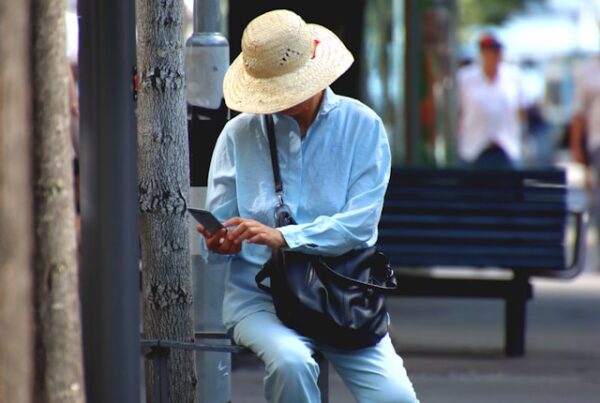When families live many miles from one another, challenges can arise when an elderly family member needs regular care. Providing long-distance caregiving and support requires a combination of remote coordination, practical assistance and emotional support. Here are some ideas for how you can achieve the best care for your loved one from a distance.
Assess their needs and plan ahead
Determine what kind of care and support your elderly relative needs. For example, do they need financial help, companionship or assistance with daily tasks or healthcare? Do they need help occasionally from a visiting care giver or would they benefit from more bespoke live-in care?
Create an emergency plan before a care plan is put in place. This can include:
- Emergency contact numbers
- Emergency key holders (to enter the home in an emergency)
- Medical information and designated access
- Power of attorney if necessary
Help your loved one to look after their financial affairs by setting up automated bill payments and arranging regular shopping deliveries if necessary.
Discuss all this with them and always ensure they have a say in decisions affecting them.
Arrange local support services
If there are close friends, other family members or local healthcare services nearby arrange for them to keep an eye on the elderly person and help coordinate support visits. Look into whether any local charities offer a befriending service or meal deliveries. When this sort of informal care is no longer enough then talk to us here at the Live-in Care Hub for advice about home care services or private live-in care services.
Health Impact of Loneliness in the Elderly
Loneliness in the Elderly
A serious problem affecting mental and physical health
Use technology for communication and monitoring
Take advantage of the wonders of modern communication and video platforms such as Zoom, WhatsApp or Facetime for more personal face-to-face chats. Microsoft’s Teams platform can also bring more people into the conversation to bring everyone together. If your elderly loved one is not comfortable using technology then make sure regular phone calls and written cards and letters are sent from all the family.
But remember that smart devices can play an important part in keeping an elderly person safe. Emergency buttons, CCTV, video doorbells and smart speakers all help create a feeling of safety in the home. Smart devices can use apps to set appointment and medication reminders.
Managing their health and medical care
Ensure they are registered with a local GP and dentist and arrange for a ‘designated person’ who is able to make decisions and be informed about any health issues. For regular medication, set up local pharmacy deliveries.
The most important aspect of long-distance caregiving, above all, means remembering to plan visits to your loved ones as often as possible and keep in close touch to provide support when you cannot be there in person.


